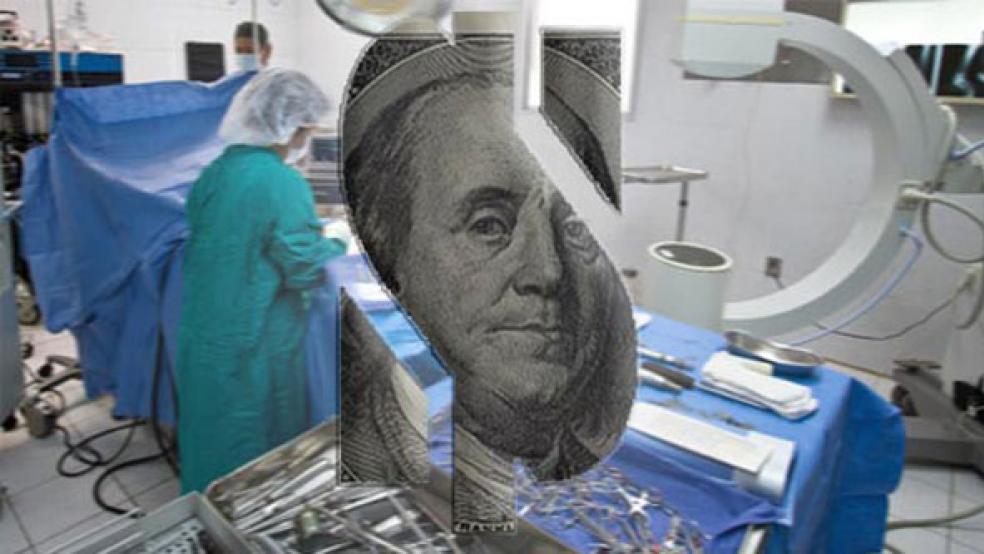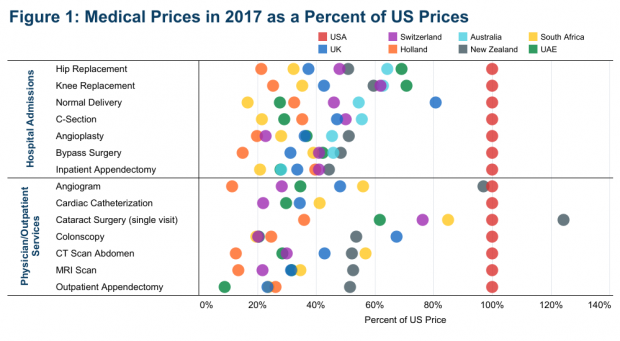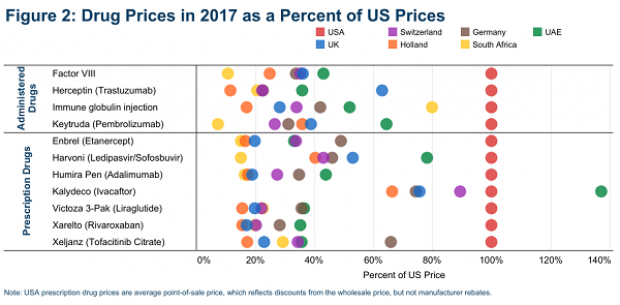A CT scan of the abdomen typically costs more than $1,000 in the U.S., but the same procedure in the U.K. costs $470, while in the Netherlands it costs just $140. Those numbers come from a new report, released Tuesday by the Health Care Cost Institute and the International Federation of Health Plans, that compares private insurance health-care prices in the U.S. to those in a sample of other wealthy countries – and finds that the U.S. is just about always the most expensive.
“The median prices paid by private insurance for health care services in the United States was almost always higher than the median prices in the eight other countries included in the iFHP study,” the report says. “Figure 1 [below] shows the prices paid for medical services in each country as a percent of the US price.”
Note that U.S. prices are marked by the red dots. In almost every case, the prices in other countries are just a fraction of the U.S. price. (Avoid getting cataract surgery in New Zealand, apparently.)
The report also looks at drug prices, and finds that with only one exception, prices in the U.S. are the highest in the group. Harvoni, used to treat hepatitis C, costs $4,840 in South Africa and $12,780 in the Netherlands, but it costs more than twice that ($31,620) in the U.S. Similarly, a Humira pen, used to treat arthritis, costs $860 in the U.K., but $4,480 in the U.S.
“Drug prices for most countries were less than half the US price for most of the administered and prescription drugs included in the study,” the report says.
Writing about the report Tuesday, Vox’s Dylan Scott said that high medical prices in the U.S. have many causes, but one in particular stands out: “The US is still the wealthiest country in the world. It’s home to the world’s leading biopharmaceutical industry. It tends to have the most cutting-edge treatments. All this contributes to higher prices here than elsewhere. But one big and unavoidable culprit is the lack of price regulation.”






